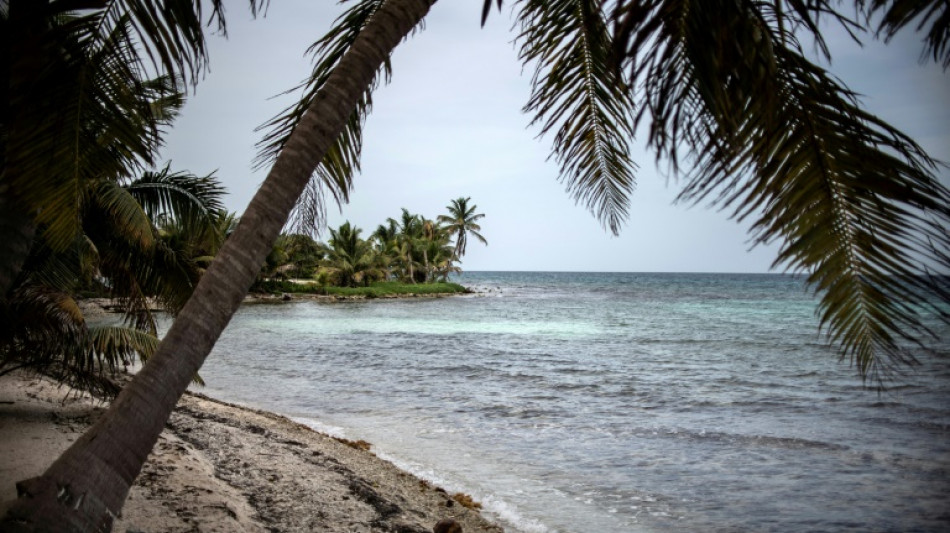
-
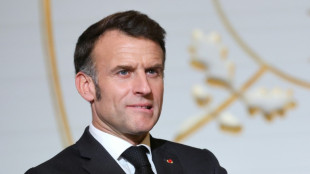 France detects Russia-linked Epstein smear attempt against Macron
France detects Russia-linked Epstein smear attempt against Macron
-
Winter Olympics to open with star-studded ceremony

-
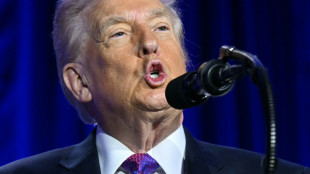 Trump posts, then deletes, racist clip of Obamas as monkeys
Trump posts, then deletes, racist clip of Obamas as monkeys
-
Danone expands recall of infant formula batches in Europe

-
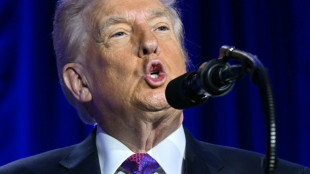 Trump deletes racist video post of Obamas as monkeys
Trump deletes racist video post of Obamas as monkeys
-
Colombia's Rodriguez signs with MLS side Minnesota United

-
 UK police probing Mandelson after Epstein revelations search properties
UK police probing Mandelson after Epstein revelations search properties
-
Russian drone hits Ukrainian animal shelter

-
 US says new nuclear deal should include China, accuses Beijing of secret tests
US says new nuclear deal should include China, accuses Beijing of secret tests
-
French cycling hope Seixas dreaming of Tour de France debut

-
 France detects Russia-linked Epstein smear attempt against Macron: govt source
France detects Russia-linked Epstein smear attempt against Macron: govt source
-
EU nations back chemical recycling for plastic bottles
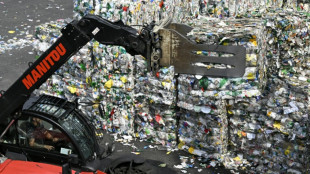
-
 Terror at Friday prayers: witnesses describe blast rocking Islamabad mosque
Terror at Friday prayers: witnesses describe blast rocking Islamabad mosque
-
Iran expects more US talks after 'positive atmosphere' in Oman

-
 US says 'key participant' in 2012 attack on Benghazi mission arrested
US says 'key participant' in 2012 attack on Benghazi mission arrested
-
Why bitcoin is losing its luster after stratospheric rise

-
 Arteta apologises to Rosenior after disrespect row
Arteta apologises to Rosenior after disrespect row
-
Terror at Friday prayers: witness describes 'extremely powerful' blast in Islamabad

-
 Winter Olympics men's downhill: Three things to watch
Winter Olympics men's downhill: Three things to watch
-
Ice dancers Chock and Bates shine as US lead Japan in team event

-
 Stellantis takes massive hit on 'overestimation' of EV demand
Stellantis takes massive hit on 'overestimation' of EV demand
-
Stocks rebound though tech stocks still suffer

-
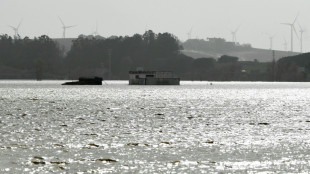 Spanish PM urges caution as fresh rain heads for flood zone
Spanish PM urges caution as fresh rain heads for flood zone
-
Iran says to hold more talks with US despite Trump military threats

-
 Russia accuses Kyiv of gun attack on army general in Moscow
Russia accuses Kyiv of gun attack on army general in Moscow
-
Cambodia reveals damage to UNESCO-listed temple after Thailand clashes

-
 Norway crown princess 'deeply regrets' Epstein friendship
Norway crown princess 'deeply regrets' Epstein friendship
-
Italy set for Winter Olympics opening ceremony as Vonn passes test

-
 England's Jacks says players back under-fire skipper Brook '100 percent'
England's Jacks says players back under-fire skipper Brook '100 percent'
-
Carrick relishing Frank reunion as Man Utd host Spurs
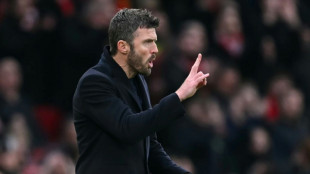
-
 Farrell keeps the faith in Irish still being at rugby's top table
Farrell keeps the faith in Irish still being at rugby's top table
-
Meloni, Vance hail 'shared values' amid pre-Olympic protests

-
 Olympic freestyle champion Gremaud says passion for skiing carried her through dark times
Olympic freestyle champion Gremaud says passion for skiing carried her through dark times
-
US urges new three-way nuclear deal with Russia and China

-
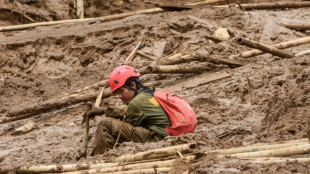 Indonesia landslide death toll rises to 74
Indonesia landslide death toll rises to 74
-
Hemetsberger a 'happy psychopath' after final downhill training

-
 Suicide blast at Islamabad mosque kills at least 31, wounds over 130
Suicide blast at Islamabad mosque kills at least 31, wounds over 130
-
Elton John accuses UK tabloids publisher of 'abhorrent' privacy breaches

-
 Lindsey Vonn completes first downhill training run at Winter Olympics
Lindsey Vonn completes first downhill training run at Winter Olympics
-
Digital euro delay could leave Europe vulnerable, ECB warns

-
 Feyi-Waboso out of England's Six Nations opener against Wales
Feyi-Waboso out of England's Six Nations opener against Wales
-
Newcastle manager Howe pleads for Woltemade patience

-
 German exports to US plunge as tariffs exact heavy cost
German exports to US plunge as tariffs exact heavy cost
-
Portugal heads for presidential vote, fretting over storms and far-right
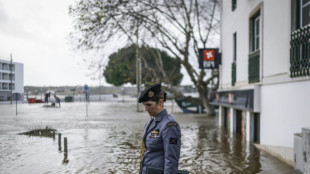
-
 Suicide blast at Islamabad mosque kills at least 30, wounds over 130: police
Suicide blast at Islamabad mosque kills at least 30, wounds over 130: police
-
Russia says Kyiv behind Moscow shooting of army general

-
 Greenland villagers focus on 'normal life' amid stress of US threat
Greenland villagers focus on 'normal life' amid stress of US threat
-
Iran, US hold talks in Oman after Trump military threats

-
 Stocks waver as tech worries build
Stocks waver as tech worries build
-
Dupont, Jalibert click to give France extra spark in Six Nations bid


How Belize became a poster child for 'debt-for-nature' swaps
When Covid hit Belize, its economy nosedived: closed borders meant fisheries and farmers had no export markets, and tourism centered on the tiny Central American nation's warm waters and wonders of biodiversity came to a halt.
"We lost approximately 14 percent of GDP," Prime Minister John Antonio Briceno told AFP in an interview. Nearly a third of the workforce of the country's 400,000 people were unemployed and there wasn't enough money "to keep the lights on," let alone maintain onerous debt repayments.
Then came a lifeline: environmental nonprofit The Nature Conservancy (TNC) offered to lend Belize money to pay off creditors if it promised to put part of the savings into marine protection.
So-called "debt-for-nature-swaps" are being hailed as an innovative financial tool for preserving ecosystems from climate change and overexploitation, even as critics warn their generosity is overstated and they are far from a cure-all.
Finalized in November 2021, a year after Briceno took office, the deal involved TNC buying back a $553 million "superbond" which held the government's entire commercial debt, negotiating a discount of 45 percent.
This was converted into a $364 million loan "blue bonds" in a sale arranged by Credit Suisse, unlocking $180 million for marine conservation over 20 years.
"For us, it was a win-win, it gave us a breather," said Briceno. Notably, the buyback reduced the country's debt-to-GDP ratio by more than 10 percent.
- Old idea, bigger scale -
Belize's coastline is home to the largest barrier reef in the northern hemisphere, providing significant habitat for threatened species including manatees, turtles and crocodiles.
But warming oceans from climate change, excessive fishing, and coastal development all pose major challenges.
Under the terms of the deal, Belize agreed to expand protection to 30 percent of its territorial waters, and spend $4.2 million annually on marine conservation.
Since then, TNC signed similar agreements with Barbados and Gabon. Ecuador negotiated the biggest swap of all in May, reducing its debt obligations by about $1.1 billion to benefit the Galapagos Islands under an arrangement overseen by Pew Bertarelli Ocean Legacy Project.
Slav Gatchev, managing director of sustainable debt at TNC, told AFP that although the first debt-for-nature swaps happened in the 1980s, now they operate at a far larger scale.
"A third of the outstanding commercial debt to lower and middle income countries is in some form of distress," he said, meaning environmental ministry budgets are stretched and it's hard for governments to invest in nature.
He sees an opportunity to refinance up to $1 trillion of the commercial and bilateral debt, in turn generating $250 billion for climate and nature.
- Paper parks? -
Andre Standing, a researcher for groups including the Coalition for Fair Fisheries Arrangements, told AFP the Belize deal was only possible because the country was about to default and it was therefore better for creditors to accept a lump sum -- rather than the altruistic act it was portrayed as by some.
Moreover, he added, such deals do nothing to address the debt crisis plaguing developing countries.
"That's true, but it's not intended to," Esteban Brenes, who leads conservation finance for the World Wide Fund for Nature (WWF), which is also looking to organize new debt swaps, told AFP.
"We're going to take a piece of the debt and use some proceeds for something better, but by no means are we going to solve the big problem," he said.
Another concern has been that countries might agree to lofty commitments to secure concessions but then fall to "paper park syndrome" where protections exist only in theory.
But Gatchev said the commitments are legally binding and governments could incur fees for breaking them.
"Our reputation as the world's largest conservation organization is on the line here, and we have no incentive to sugarcoat lack of compliance," he stressed.
Briceno, for his part, said the high-profile deal had increased environmental consciousness among his people, who were now quick to report illegal mangrove dredging, for instance.
The debt restructure was "a very good start," he continued, but his country needed far more assistance from the Global North.
"Developed countries destroyed their environment to be able to have development: high-rises, big vehicles, nice fancy homes," said Briceno.
"Now we want the same and you're telling us 'we can't afford you to destroy what we have destroyed' -- then pay us."
Z.AbuSaud--SF-PST



